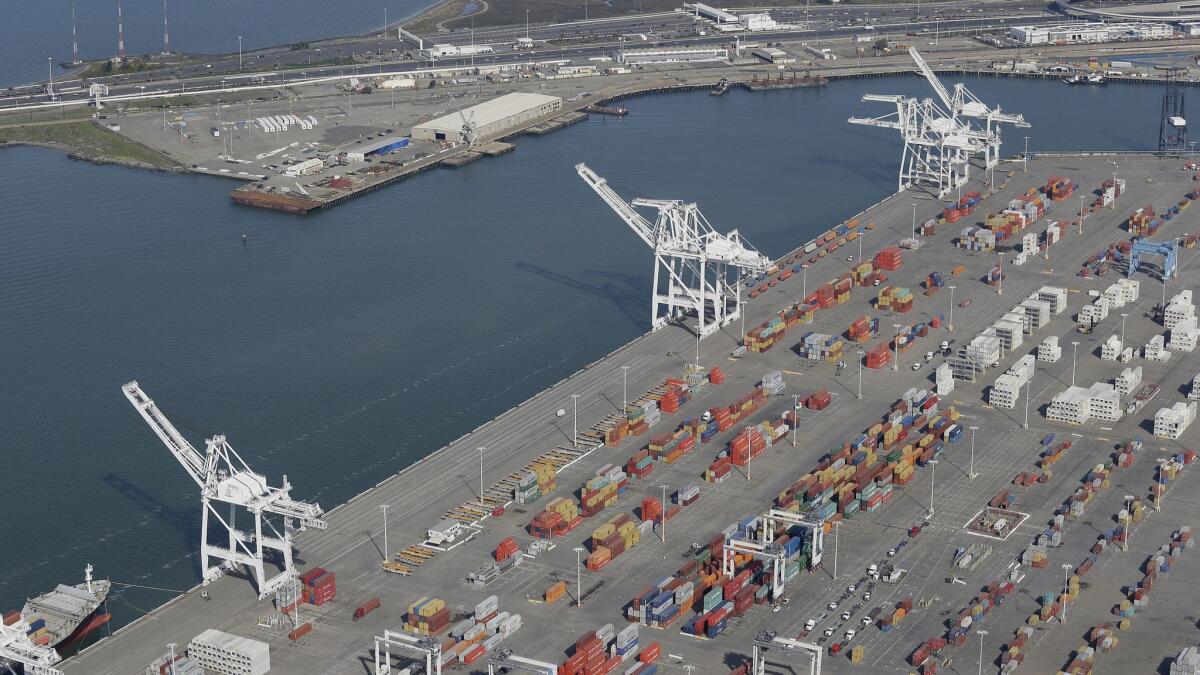Judge strikes down Oakland’s ban on shipping coal through port

A federal judge struck down the city of Oakland’s ban prohibiting companies from transporting coal through a proposed export terminal that U.S. miners see as a key link to overseas markets.
The ban — enacted by the city in 2014 — violates a development agreement, U.S. District Judge Vince Chhabria ruled Tuesday, siding with a developer who wants to use the proposed marine terminal to transport coal from Utah to Asia.
Chhabria said the City Council did not have enough evidence that the coal operations would pose a substantial threat to health or safety.
As demand for coal in the U.S. declines, miners depend increasingly on overseas markets. Meanwhile, Oakland is among several terminal locations in California and the Pacific Northwest that environmentalists have pushed to close to miners in an effort to keep U.S. coal off the international market. Reversing the ban could increase exports by as much as 19%, according to the Sierra Club.
“Access to growing world markets for our coal reserves could be greatly enhanced — as well as the employment it would support throughout the supply chain — if we had the infrastructure befitting a global economic power,” Luke Popovich, a spokesman for the National Mining Assn., said in an email.
The legal dispute hinged on whether the coal ban violated an agreement between the city and a company developing a bulk loading terminal near the city’s port. The developer, Oakland Bulk & Oversized Terminal LLC, argued the city had no substantial evidence that shipping coal through the terminal would endanger the health of workers or surrounding communities.
“On the primary question presented by this lawsuit, Oakland is wrong,” Chhabria wrote.
City leaders approved the rail and marine terminal in 2013 as part of a makeover of a former Army base. But they voted to ban shipments of coal and petroleum coke, a solid derived from oil refining.
The $250-million terminal is in west Oakland, a historically African American neighborhood that is among the poorest and most polluted in the region.
Even without the ban at the Oakland terminal, miners may still face obstacles trying to ship coal through the West Coast, according to Jeremy Sussman, an analyst at Clarksons Platou Securities.
“Most realists have come to the conclusion that West Coast states such as California, Washington and Oregon simply aren’t going to allow a lot of coal exports now or in the future,” he said in an email.
In 2016, Gov. Jerry Brown signed legislation banning state transportation funding for new coal export terminals.
The Associated Press was used in compiling this report.






